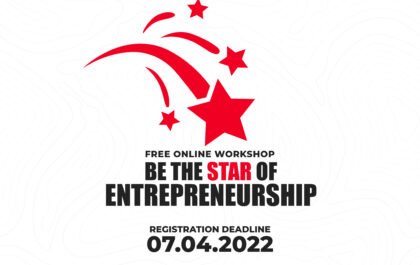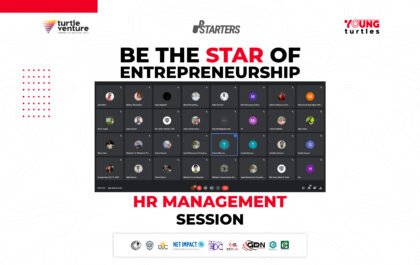Startups do not exist in a vacuum.In a certain context, they are born as parts of an entity ,a network, a system much larger than themselves.Entrepreneurs are supported by people, organizations and other start-ups around them. We call this an ecosystem for start-ups.
A startup ecosystem mainly includes of individuals, start-ups in their various phases and different kinds of companies locally (physically and/or virtually).Startup Ecosystems offers a range of goods and services that others and companies depend on.
What Is Startup Ecosystem?
The start-up ecosystem consists of a group of people, start-ups and associated organizations that work in a new start-up system. Startup ecosystems are often formed in a relatively small area with a center of gravity such as universities or technology businesses. It brings together key players and stakeholders, including new businesses, mentors, incubators, talent sources such as universities and corporations; investment and support for services such as start-up law and accounting agencies, that contribute to growth.
Resources such as skills, time, and money are essential parts of the startup ecosystem. The people and organizations involved in these start-up ecosystems provide the majority of the ecosystem resources. These interactions are critical in the movement of resources through the system via events and meetings with and between organizations and individuals in order to create new potentials or strengthen existing companies, and thus influence the value of startups formed.
External and internal factors shape startup ecosystems. External factors such as the financial climate, major market disruptions, and large company transitions influence the overall structure and operation of an ecosystem.
In the ecosystem, the availability of resources is regulated by internal factors such as the ability of people and organisations to contribute to the ecosystem. Other internal factors include successes and failures of startups with different types of people and the skills available. While there are and function within ecosystems, their cumulative effects can influence external factors such as the financial environment.
Whether you are a successful founding member of multiple companies or are ready to get started, fires will always come up.
But you should still take time not only to build your own company, but also to build the community around your company, despite your busy schedule. As you will find in this blog post, your local startup environment is not as hard as it seems to be, and also gives you and your startup a multitude of advantages.
How to Build A Startup Ecosystem
Here are some basic methods to address the task to be successful, no matter where you’re trying to develop a sustainable startup ecosystem:
Begin with a collaborative mindset
The first step is to realize that entrepreneurship is not a “zero-sum” game. Startups are fascinating precisely because they have the potential to generate previously untapped markets. When you embrace this mentality, the most lucrative opportunity is to make the pie bigger for everyone. A competitive startup, startup organization, or startup ecosystem does not have to lose in order for you to gain.
It may sound easy, but most people have been raised with the traditional business mindset of gaining market share at the expense of others, making this concept difficult to grasp.
Keep in mind that an ecosystem is defined as “a collection of interconnected elements generated by the interaction of a community of organisms with their environments.” Startup ecosystems with a “me-first” mentality perish soon.
Create a map of your startup ecosystem.
The first step in establishing your startup ecosystem is to become familiar with all of the entrepreneurial activity that is taking on in your immediate vicinity. While this may necessitate some research, you’ll be able to better plan your future moves.
This will be critical in terms of understanding your location and how to work with it to achieve startup success. It will also aid in the development of your network, allowing you to structure the ecosystem in a way that is beneficial to startups.
A critical step in effectively planning out the infrastructure in your area is mapping out your startup ecosystem. You’re putting your ecosystem up for failure if your infrastructure isn’t correctly built out.
Connect with Like-Minded People
It should come as no surprise that one’s surroundings has a significant impact on one’s success. This is why aspiring actresses and fashion designers choose to reside in Los Angeles or New York. Similarly, people who aspire to be successful entrepreneurs gravitate toward places where they have a better chance of succeeding. What happens to the millions of people who are unable to relocate to Silicon Valley? According to the MIT Technology Review, innovation centers are sprouting up all over the world, including in Bangalore, Beijing, Skolkovo, and London. In fact, not being close to Silicon Valley eliminates the need for other aspiring entrepreneurs to relocate, allowing them to develop their own equally successful startup ecosystems.
If you’re seeking for a group of people who share your vision and aspirations, you’re not alone. Entrepreneurs recognize that people who help them are a valuable resource. Problems are solved more quickly when people work together to solve them.
Observation can provide in-depth knowledge rather than acquiring lessons the hard way.You’ll get a firsthand look at both their successes and failures if you’re surrounded by others who are working to attain their goals.
Foreign investors began to attend the monthly meetings since there were so many prospective entrepreneurs and new inventive concepts. People who are striving for achievement tend to draw others who are following in their footsteps. Henry Ford said it concisely:
“Coming together is a beginning. Keeping together is progress. Working together is success.”
Cooperate with the Government
Make contact with your town’s Business association to see what they have to offer small enterprises just getting started, and include local government leaders and groups in your events. Better yet, become active in your city’s politics by attending council meetings and making your case for why startups can benefit the city. Work with your government to secure a little sum of money for a large event with well-known speakers. Then, using the momentum generated by that event, establish further programs to assist entrepreneurs.
Local governments can provide a wealth of valuable resources to small businesses, such as assistance with filing business taxes and advice on obtaining business licenses. To create collaborative work settings, many government organizations offer coaching/training programs for entrepreneurs at incubation facilities. Furthermore, government agencies provide financial incentives to entrepreneurs in the form of grants, awards, and tax credits to assist them in financing their businesses.
As a startup ecosystem developer, you should make an effort to form strategic alliances with local government agencies, as they lay the groundwork for entrepreneurship in their respective communities.
Organize Industry Events
To become a startup ecosystem leader, one must gain experience organizing industry events. When you work as a host or hostess, you establish yourself as an expert in the startup culture. By bringing together authoritative business leaders, you become a trusted source and an important link that connects your community.
Keep in mind that consistency is essential. The more events you attend or organize, the more people you’ll attract to your network. Surrounding yourself with a large number of entrepreneurs, mentors, investors, and business experts creates a collaborative circle that can grow into a formidable business force.
George Bernard Shaw, the co-founder of the London School of Economics, once said,
“If you have an apple and I have an apple and we exchange these apples then you and I will still each have one apple. But if you have an idea and I have an idea and we exchange these ideas, then each of us will have two ideas”
If your startup ecosystem produces a strong company, funding will follow – whether from international investors or the growing viability of online funding networks.
So, Focus first on building a strong startup ecosystem from the ground up. When great companies emerge, capital will follow, and a sustainable startup ecosystem will emerge.
Related posts
Subscribe for newsletter
* You will receive the latest news and updates on your favorite celebrities!
Young Turtles 2022 Workshop by Turtle Venture
Turtle Venture is here with a brand new workshop for you to join! The registration for Young Turtles 2022 is…
SHE LOVES TECH Bangladesh 2020
I f you’re a woman entrepreneur, then “She Loves Tech” would be a popular name for you, right? They will…
SELISE Coding Challenge 2020
A re you a coder? Are you bored in this quarantine while looking for opportunities to enrich or test your…
GP Accelerator Startup Talk Episode-1
D ue to COVID-19, it was like life almost had stopped in the earlier days. Though it’s not like that…
bKash Launches bTechWhiz to JumpStart Talent Hunt from University Graduates
The leading mobile financial services (MFS) provider in the nation, bKash, has started a program called “bTechWhiz” to find and…
“Be The Star of Entrepreneurship” Mentorship Sessions: Startup Literacy
The sixth mentorship session of “Be The Star of Entrepreneurship” 2022 was conducted on the 19th of April on Startup…
“Be The Star of Entrepreneurship” Mentorship Sessions: Startup Finance
The fifth mentorship session of “Be The Star of Entrepreneurship” 2022 was conducted on the 18th of April on Startup…
“Be The Star of Entrepreneurship” Mentorship Sessions: Product Design
The fourth mentorship session of “Be The Star of Entrepreneurship” 2022 was conducted on the 16th of April on Product…
“US Patent and Trademark Office Meets MSMEs and Startups” Session Held
A session was held recently on 10th May 2022; organized by iSocial Limited and facilitated by Turtle Venture- regarding…
“Be The Star of Entrepreneurship” Mentorship Sessions: HR Management
The latest mentorship session of “Be The Star of Entrepreneurship” 2022 was conducted on the 24th of April on HR…
“Be The Star of Entrepreneurship” Mentorship Sessions: Fund Raising
The latest mentorship session of “Be The Star of Entrepreneurship” 2022 was conducted on the 28th of April on Fund…
Bangladeshi Startups Getting $750 Million in Foreign Investment
In the last decade, the country has attracted over $750 million in foreign investment in the startup industry, according to…












